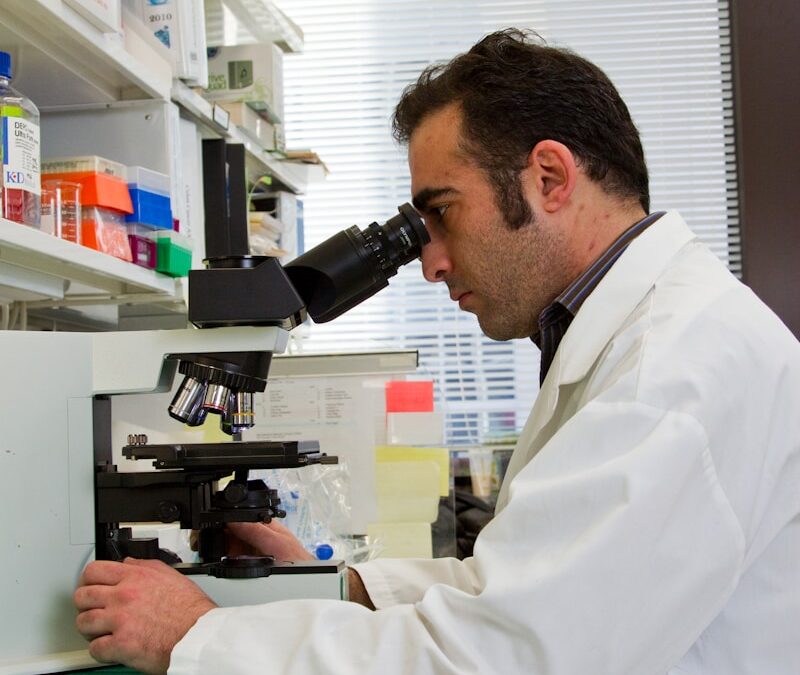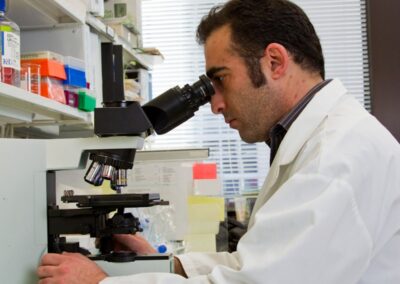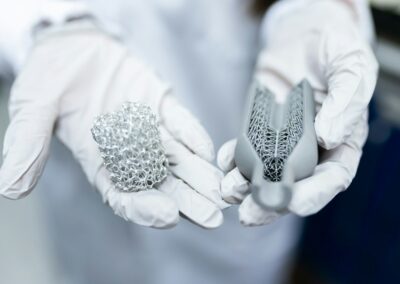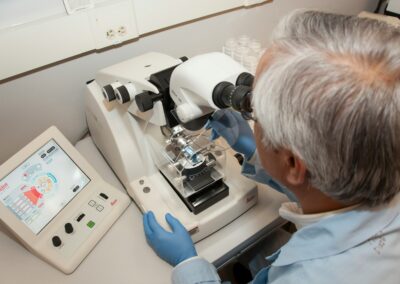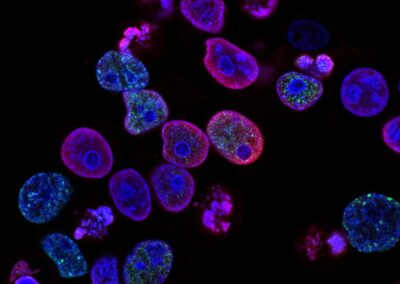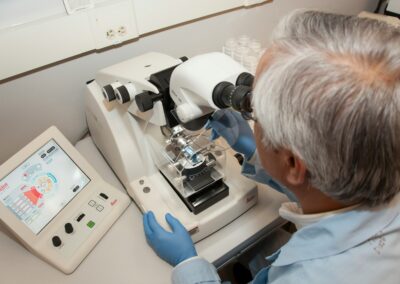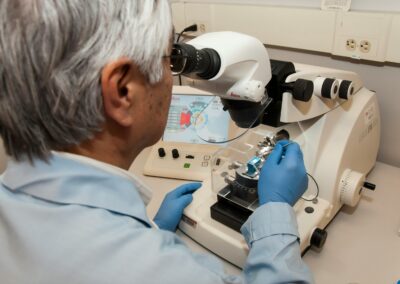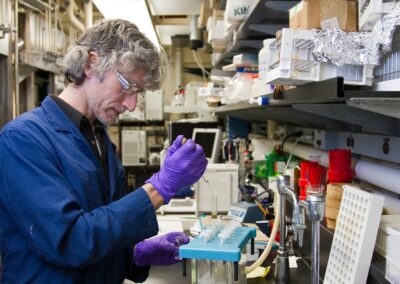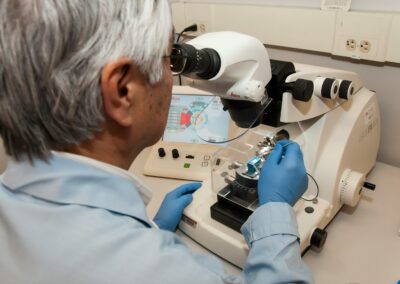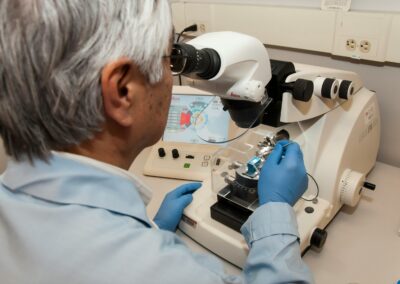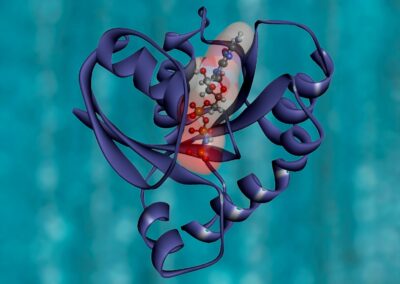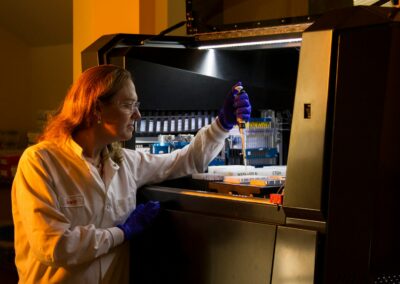Revolutionizing Healthcare with Biotechnology
Enhancing Disease Diagnosis and Treatment
Advancements in biotechnology are significantly transforming the landscape of disease diagnosis and treatment. In regions like Saudi Arabia and the UAE, where healthcare innovation is a strategic priority, biotechnology is being harnessed to develop more precise and personalized medical solutions. Techniques such as CRISPR-Cas9 are enabling scientists to edit genes with unprecedented accuracy, paving the way for treatments of genetic disorders that were previously deemed incurable. By modifying specific genes, researchers can target the root causes of diseases, offering hope for conditions such as cystic fibrosis, sickle cell anemia, and certain types of cancer. These groundbreaking advancements are enhancing the quality of healthcare and improving patient outcomes.
Advancing Regenerative Medicine
Biotechnology is also making significant strides in the field of regenerative medicine, which focuses on repairing or replacing damaged tissues and organs. In dynamic cities like Riyadh and Dubai, healthcare institutions are exploring the potential of stem cell therapy and tissue engineering. Stem cells, which have the ability to develop into various cell types, are being used to regenerate damaged tissues and treat conditions such as spinal cord injuries, heart disease, and diabetes. Additionally, 3D bioprinting technology, which utilizes biological materials to print organs and tissues, is showing promise in addressing the critical shortage of donor organs. These innovations are revolutionizing the approach to medical treatments and improving the lives of patients.
Promoting Preventive Healthcare
Biotechnology is playing a crucial role in promoting preventive healthcare by enabling early detection and intervention. In forward-thinking markets like Saudi Arabia and the UAE, biotechnological advancements are being integrated into routine medical screenings and public health initiatives. Genetic testing, for instance, allows individuals to understand their predisposition to certain diseases and take proactive measures to mitigate risks. Moreover, advancements in biomarker discovery are facilitating the development of early diagnostic tests for conditions such as Alzheimer’s disease and various cancers. By shifting the focus from reactive to preventive care, biotechnology is helping to reduce the burden of chronic diseases and enhance overall public health.
Developing Personalized Medicine
Genetic engineering is at the forefront of developing personalized medicine, which tailors treatments to an individual’s genetic makeup. In tech-savvy cities like Riyadh and Dubai, healthcare providers are leveraging genetic data to create customized treatment plans that optimize efficacy and minimize side effects. Pharmacogenomics, the study of how genes affect a person’s response to drugs, is enabling the development of targeted therapies for conditions such as cancer, cardiovascular diseases, and mental health disorders. By considering an individual’s genetic profile, personalized medicine ensures that treatments are more effective and tailored to the specific needs of each patient, revolutionizing the approach to healthcare.
Combating Infectious Diseases
Genetic engineering is also playing a pivotal role in combating infectious diseases by enabling the development of advanced vaccines and therapies. In the wake of global health challenges such as the COVID-19 pandemic, regions like Saudi Arabia and the UAE have been at the forefront of adopting innovative biotechnological solutions. Messenger RNA (mRNA) vaccines, which use genetic material to instruct cells to produce a protein that triggers an immune response, have proven to be highly effective in preventing infectious diseases. Additionally, gene editing technologies are being explored to develop antiviral therapies that can target and eliminate pathogens at the genetic level. These advancements are enhancing the ability to respond to infectious disease outbreaks and protect public health.
Addressing Agricultural Challenges
Beyond healthcare, genetic engineering is addressing agricultural challenges by improving crop resilience and productivity. In arid regions like Saudi Arabia and the UAE, where water scarcity and extreme temperatures pose significant challenges to agriculture, genetically modified (GM) crops are being developed to withstand harsh environmental conditions. These crops are engineered to be more resistant to pests, diseases, and drought, ensuring food security and sustainability. Additionally, genetic engineering is enabling the development of crops with enhanced nutritional profiles, addressing malnutrition and improving public health. By leveraging biotechnological innovations, these regions are enhancing agricultural productivity and contributing to global food security.
#Biotechnology #GeneticEngineering #HealthcareInnovations #SaudiArabia #UAE #Riyadh #Dubai #ChangeManagement #ExecutiveCoaching #EffectiveCommunication #BusinessSuccess #ManagementConsulting #ArtificialIntelligence #Blockchain #Metaverse #GenerativeAI #LeadershipSkills #ProjectManagement

